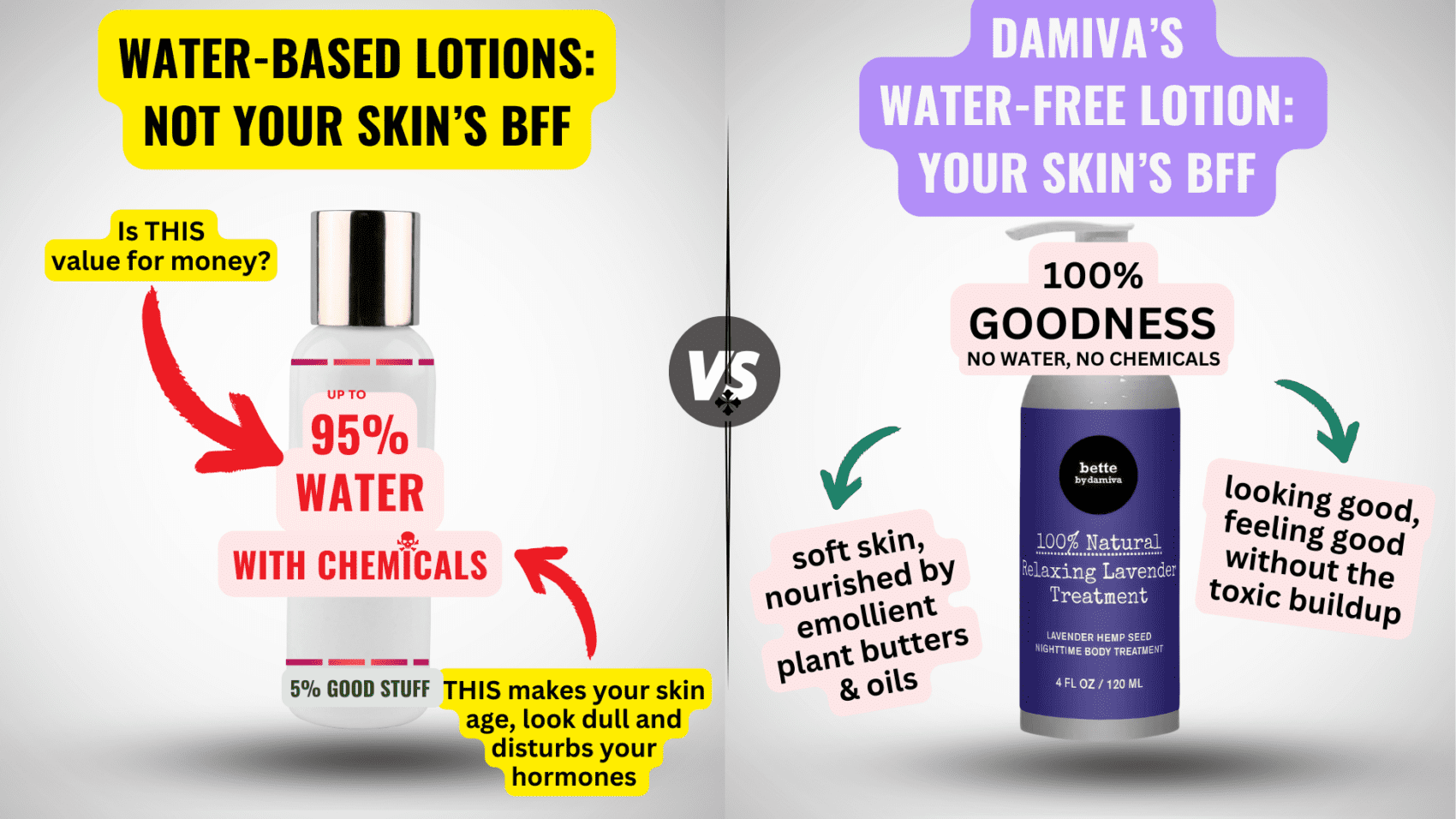Menopause is a natural biological process that marks the end of a woman’s menstrual cycles. It is officially diagnosed after a woman has gone 12 consecutive months without a menstrual period. Typically occurring between the ages of 45-55, the average age of menopause in the United States is 52 years old. Perimenopause is the transitional phase leading up to menopause, where the body gradually produces less estrogen. This phase can span 7-14 years, during which women may begin to experience various symptoms associated with the approaching menopause.
Common Symptoms Experienced During Menopause
As women transition through perimenopause to menopause, they may encounter a range of symptoms. These can include:
- Hot flashes and night sweats
- Insomnia and sleep disturbances
- Vaginal dryness and changes in libido
- Weight gain and changes in metabolism
- Mood swings and irritability
These symptoms are a result of the body adjusting to decreased levels of estrogen and progesterone.
The Impact of Decreased Estrogen Levels
Estrogen is a hormone that plays a crucial role in the female body. As estrogen levels decline during menopause, women face an increased risk of health issues such as osteoporosis, heart disease, and urinary incontinence. The decrease in estrogen can also lead to the symptoms mentioned above, significantly impacting a woman’s quality of life during this transition.
Variability of Menopausal Experience Among Women
It’s important to note that menopause is a highly individual experience. Some women may go through menopause with only minor discomfort, while others may suffer from severe symptoms that affect their daily lives. Factors such as lifestyle, genetics, and overall health can influence the intensity and duration of menopausal symptoms. Therefore, it is essential for women to have access to personalized care and treatment options that address their unique needs during this phase of life.
The Role of Vitamins in Menopause Management
Overview of Vitamins and Menopause Symptom Relief
Menopause marks a significant transition in a woman’s life, characterized by the cessation of menstruation and a decline in estrogen levels. This hormonal shift can lead to a variety of symptoms, including hot flashes, insomnia, mood swings, and changes in libido. While these experiences vary widely among women, some may find relief through the strategic use of vitamins. Vitamins can play a crucial role in managing menopausal symptoms and supporting the body’s changing needs during this time.
For instance, Vitamin E has been noted for its antioxidant properties, which may help reduce oxidative stress and inflammation, potentially easing stress and lowering the risk of depression. Vitamin B-6 is involved in serotonin production, which can influence mood and help alleviate symptoms like depression and mood swings. Vitamin D is essential for bone health, particularly important as menopause increases the risk of osteoporosis. Vitamin A, obtained from beta-carotene, supports bone health, while Vitamin B-12 is crucial for neurological function and the creation of red blood cells.
How Vitamins Can Support Overall Health During Menopause
As estrogen levels decrease during menopause, the risk of developing conditions such as osteoporosis and heart disease increases. Vitamins can support overall health by addressing these risks and providing the body with the necessary nutrients for optimal functioning. A balanced intake of vitamins helps maintain the integrity of bones, supports cardiovascular health, and ensures the proper functioning of the nervous system.
- Vitamin D and calcium work synergistically to maintain bone density and reduce the risk of fractures.
- Vitamin B-12 and folate play a role in maintaining heart health and preventing anemia.
- Vitamin A supports immune function and skin health, which can be particularly beneficial as the skin becomes more susceptible to aging during menopause.
- Vitamin C is vital for collagen production, aiding in skin elasticity and potentially helping to mitigate vaginal dryness.
Moreover, vitamins can indirectly support menopausal health by promoting better sleep, enhancing mood, and improving energy levels. For example, magnesium, often paired with vitamin B-6, can improve sleep quality and reduce anxiety. A well-rounded approach that includes both dietary sources of these vitamins and supplementation, when necessary, can help women navigate the challenges of menopause more comfortably.
In conclusion, while vitamins are not a cure-all for menopausal symptoms, they can be an integral part of a comprehensive strategy for managing menopause. By supporting overall health and targeting specific symptoms, vitamins can help women maintain their quality of life during this natural phase of aging.
Key Vitamins to Consider During Menopause
Vitamin A: Benefits and Risks
Vitamin A plays a crucial role in maintaining healthy bones, vision, and immune function. During menopause, vitamin A obtained from beta-carotene may help maintain bone health. However, high levels of preformed vitamin A, primarily found in animal products and supplements, have been linked to an increased risk of hip fractures in postmenopausal women. It’s essential to balance intake and aim for at least 20 percent of vitamin A from beta-carotene in supplements. The recommended daily value should not exceed 5,000 IU.
Vitamin B-12: Importance and Deficiency Risks
Vitamin B-12 is vital for bone health, neurological function, DNA production, and red blood cell creation. As absorption decreases with age, the risk of deficiency increases, potentially leading to fatigue, weakness, and even anemia. The RDA for vitamin B-12 is 2.4 mcg daily for females aged 14 and older. Supplementation and consumption of fortified foods can help meet these requirements.
Vitamin B-6: Mood Regulation and Serotonin Production
Vitamin B-6 is instrumental in producing serotonin, which regulates mood. Serotonin levels often drop with age, contributing to mood swings and depression common in menopause. The RDA of vitamin B-6 is 1.3 mg daily for females 19-50, and 1.5 mg for those above 50. Supplementation may help prevent symptoms caused by low serotonin levels, such as loss of energy and depression.
Vitamin D: Bone Health and Deficiency Concerns
Vitamin D deficiency can lead to bone fractures, pain, and osteomalacia. Older women, particularly those not exposed to sunlight, are at risk. The RDA for vitamin D is 15 mcg (600 IU) daily for women aged 19 to 50 and 20 mcg (800 IU) for those over 50. Supplementation ensures adequate daily intake, alongside a diet rich in vitamin D sources like fatty fish, fortified foods, and egg yolks.
Vitamin E: Antioxidant Properties and Stress Reduction
As an antioxidant, vitamin E combats cell-damaging free radicals and may reduce inflammation. Stress, common during menopause, can lead to cell damage and increase the risk of depression and heart disease. Vitamin E supplementation, along with a diet rich in vitamin E sources such as wheat germ, almonds, and spinach, can help ease stress and potentially reduce the risk of depression. The daily goal should be at least 15 mg.
Dietary Sources and Supplementation
Natural Food Sources for Essential Vitamins
During menopause, the body’s needs for certain nutrients may increase or become more critical. Vitamins A, B-12, B-6, D, and E are particularly important. Vitamin A, found in orange and yellow fruits and vegetables, plays a role in maintaining healthy bones and vision. Vitamin B-12 is crucial for neurological function and is found in fortified foods and animal products like fish, meat, eggs, and dairy. Vitamin B-6 aids in mood regulation and is present in foods such as poultry, fish, potatoes, and non-citrus fruits. Vitamin D is synthesized by the body upon sunlight exposure and is also found in fatty fish, fortified foods, and egg yolks. It’s essential for bone health, particularly to prevent osteoporosis. Lastly, Vitamin E, an antioxidant, can be sourced from nuts, seeds, and green leafy vegetables and helps combat oxidative stress.
Supplementation: Dosage and Daily Recommended Values
While a balanced diet is the best way to obtain these vitamins, supplementation may be necessary for some women to meet the daily recommended values, especially when dietary intake is insufficient or specific nutrient needs are increased. For instance, the recommended dietary allowance (RDA) for Vitamin B-12 is 2.4 micrograms for females over 14, and for Vitamin D, it’s 15-20 micrograms, depending on age. It’s important to note that excessive intake of vitamins, particularly fat-soluble ones like Vitamins A and E, can lead to toxicity. Therefore, it’s crucial to adhere to the recommended dosages and consult healthcare professionals when considering supplementation.
Balancing Diet and Supplements for Optimal Intake
Striking the right balance between diet and supplements is key to achieving optimal vitamin intake. Women should aim to get most of their nutrients from natural food sources, which offer a complex nutritional matrix that supplements can’t replicate. However, when supplementation is necessary, it should complement the diet, not replace it. For example, if dietary intake of Vitamin D is low, a supplement can help reach the RDA. However, regular monitoring of vitamin levels is advisable to adjust intake as needed and avoid the risks associated with over-supplementation.
By the way, something for you, a little gift!!!
I am just in the middle of publishing my book. It’s about How women can balance their hormones. One part is about food and diet, of course.
Follow this link and enter your email.
I will send you this part of the book for free once the book is published. It has many concrete, practical tips and recipes and will help you feel better during menopause or times of Big hormonal fluctuations.
Annette, Damiva Lead for Health & Wellness

Potential Risks and Considerations
Vitamin A: Toxicity and Bone Health Controversy
Vitamin A is crucial for maintaining healthy bones, vision, and immune function. However, excessive intake of preformed vitamin A (retinol) can lead to toxicity, with symptoms such as dizziness, nausea, and headaches. In severe cases, it can cause liver damage and increased risk of bone fractures, particularly in postmenopausal women. A 2002 study linked high levels of retinol with hip fractures in this demographic. While vitamin A from beta-carotene does not seem to pose the same risks, it is recommended that menopausal women do not exceed the daily recommended value of 5,000 IU and choose supplements with at least 20 percent derived from beta-carotene.
Vitamin E: Cautions for Specific Health Conditions
Vitamin E, known for its antioxidant properties, can be beneficial in reducing oxidative stress and inflammation. However, caution is advised for individuals with certain health conditions. Those with Alzheimer’s disease, kidney problems, or heart issues should use vitamin E supplements cautiously. Additionally, vitamin E may interact with medications for these conditions, potentially exacerbating symptoms or reducing the effectiveness of treatments.
Interactions with Medications and Other Vitamins
Many over-the-counter and prescription drugs can interact with vitamins, altering their effectiveness or causing adverse effects. For example, vitamin A supplements should be used with caution in individuals taking blood thinners, oral contraceptives, or certain antibiotics due to potential interactions. It is essential to consult with a healthcare provider before starting any new vitamin regimen, especially if you are on medication.
Special Precautions for Vitamin D, B-6, and B-12
Vitamin D is vital for bone health, but it can also affect blood sugar levels and blood pressure. Menopausal women with diabetes or low blood pressure should monitor their vitamin D intake carefully. Vitamin B-6, while helpful in mood regulation, may increase bleeding risk, so those with bleeding disorders or on blood thinners should exercise caution. Vitamin B-12 is generally safe but should be used with care in individuals with heart problems, high blood pressure, or a history of cancer. Always ensure that your intake of these vitamins aligns with the recommended dietary allowances and consult with a healthcare professional for personalized advice.
In conclusion, while vitamins can play a supportive role in managing menopause symptoms and maintaining overall health, it is crucial to be aware of the potential risks and interactions associated with their use. A balanced approach that includes dietary sources, appropriate supplementation, and professional guidance can help menopausal women navigate these concerns effectively.

From unhappy, dry, and sandpaper to silky, smooth and feeling good. That’s Cleo. Cleo is a 100% natural labial balm to moisture and soothe “your other lips”. Cleo is chemical-free, water-free, pH optimized and helps maintain and restore your delicate labial skin’s natural flora. Ideal for daily use or as needed. Get the most silky, lovable lips ever.
Lifestyle Factors Influencing Menopause and Vitamin Efficacy
Physical Activity and Its Benefits
Engaging in regular physical activity is a cornerstone of healthy living, especially during menopause. Exercise can help alleviate some menopausal symptoms, such as mood swings, weight gain, and sleep disturbances. It also plays a crucial role in maintaining bone density, thus preventing osteoporosis, which is a common concern during this life stage. Weight-bearing exercises, strength training, and aerobic activities are particularly beneficial. Additionally, physical activity can improve cardiovascular health, which may be adversely affected by the hormonal changes of menopause.
Stress Management Techniques
Menopause can be a stressful time due to the various physical and emotional changes women experience. Effective stress management techniques are essential for maintaining overall well-being. Practices such as mindfulness meditation, deep breathing exercises, yoga, and tai chi have been shown to reduce stress levels. These activities can also improve sleep quality, enhance mood, and promote a sense of calm, helping to mitigate some of the psychological symptoms associated with menopause.
The Importance of Sleep and Dietary Choices
Quality sleep is vital for health, particularly during menopause when sleep disturbances are common. Good sleep hygiene practices, such as maintaining a regular sleep schedule, creating a comfortable sleep environment, and avoiding stimulants before bedtime, can improve sleep quality. Moreover, dietary choices play a significant role in menopausal health. A balanced diet rich in calcium, vitamin D, and phytoestrogens can support bone health and may alleviate some menopausal symptoms. Foods high in antioxidants, such as fruits and vegetables, can combat oxidative stress, while those rich in fiber can aid in digestion and weight management.

THEN IT CONTAINS TOXIC CHEMICALS. WHY RISK IT GETTING SICK? GO CHEMICAL FREE.
Consulting Healthcare Professionals
When to Talk to Your Doctor About Menopause
Menopause is a natural phase in a woman’s life, but it can bring about symptoms that significantly affect daily living. It’s important to consult with your healthcare provider when you first notice menopausal symptoms, such as irregular periods, hot flashes, sleep disturbances, or mood swings. Additionally, if you experience symptoms that are severe or are concerned about health risks associated with menopause, such as osteoporosis or heart disease, it’s crucial to seek professional advice. Your doctor can provide guidance on symptom management, discuss hormone replacement therapy, and recommend lifestyle changes or supplements tailored to your needs.
Personalizing Vitamin Intake Based on Individual Needs
Every woman’s menopausal journey is unique, and so are her nutritional requirements. Vitamins can play a significant role in managing menopause symptoms and supporting overall health, but it’s essential to personalize vitamin intake. Factors such as dietary habits, pre-existing health conditions, and individual symptoms should be considered. A healthcare professional can help determine which vitamins you may need more of and advise on the appropriate forms and dosages. For instance, if you’re at risk for bone density loss, increased calcium and vitamin D may be recommended, while B vitamins might be suggested to support mood and energy levels.
Monitoring Health and Adjusting Vitamin Regimen Accordingly
As you progress through menopause, your health and nutritional needs may change. Regular check-ups with your healthcare provider are important for monitoring your health and making necessary adjustments to your vitamin regimen. Blood tests can help assess vitamin levels and overall health status. If you’re taking vitamin supplements, it’s important to review their effectiveness and adjust dosages as needed. Your healthcare provider can also help you navigate potential risks and interactions with other medications. Remember, ongoing communication with your doctor is key to ensuring that your vitamin intake continues to meet your evolving needs during menopause.


















